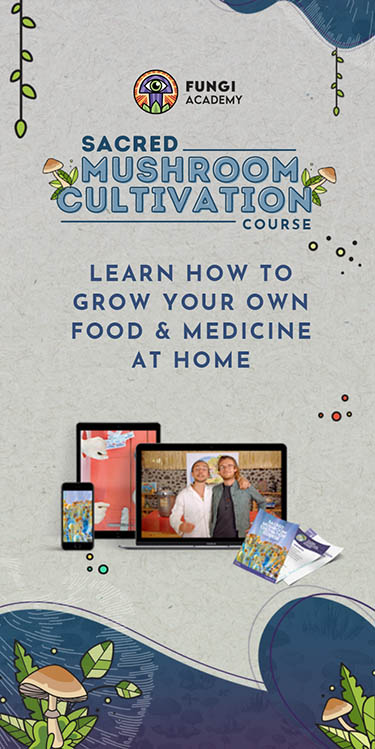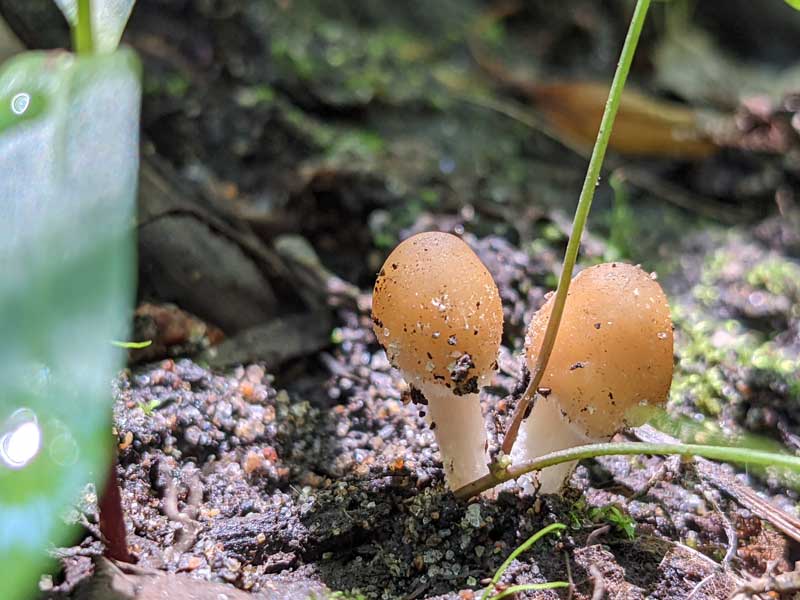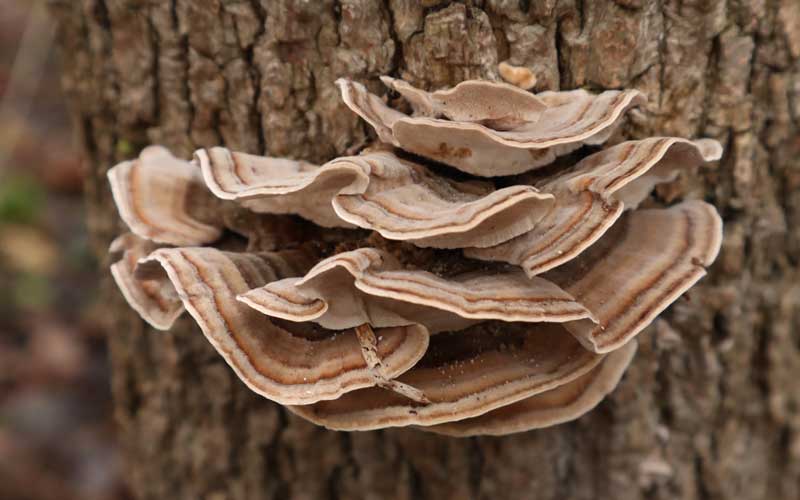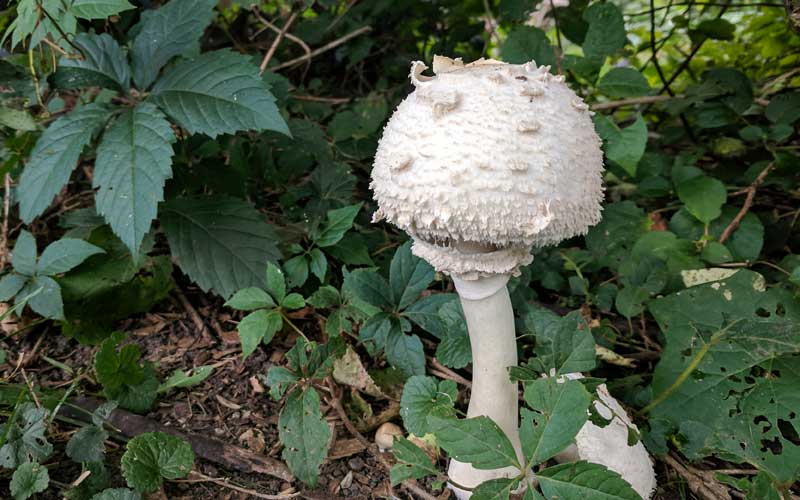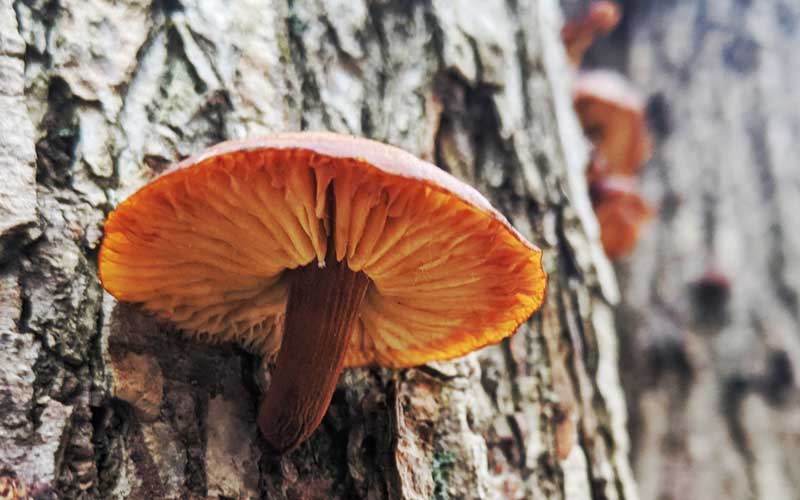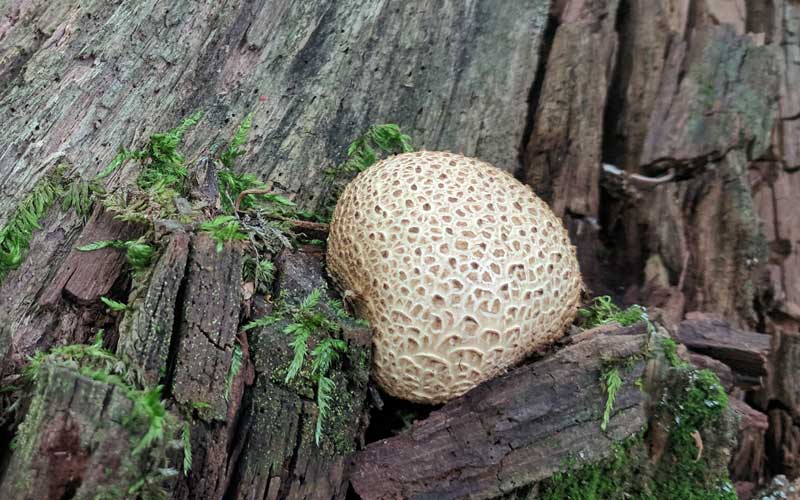- Home
- Mycoremediation
- Oyster Mushrooms
Oyster mushrooms – perhaps the most underrated mushroom of them all.
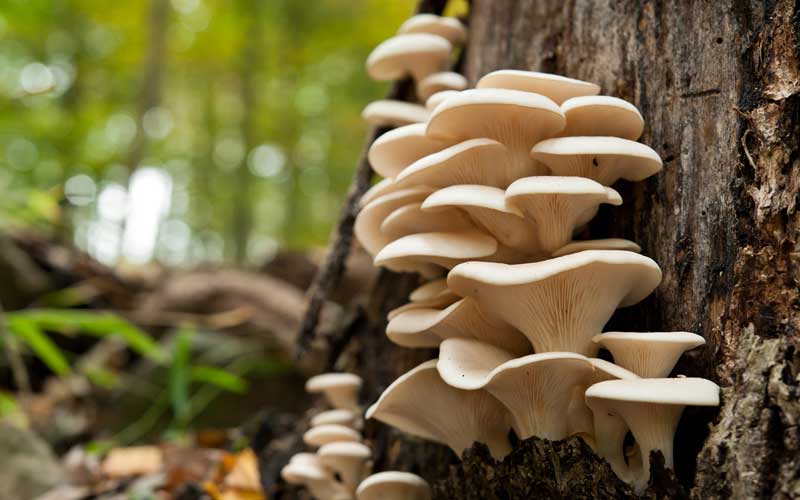
I’m a huge fan of Oyster mushrooms, and feel they don’t get their fair share of the headlines.
When it comes to edible mushrooms, everyone likes to talk about Shiitake mushrooms, Morels, Chanterelles, and Porcinis.
Yes, Oyster mushrooms get a brief mention or two. But that’s about it.
Which is a pity, because Oyster mushrooms are both delicious and nutritious.
The same goes for conversations about medicinal mushrooms. Everyone talks about Reishi, Chaga, Turkey Tail, Lion’s Mane and even Maitake mushrooms. But not much about Oyster mushrooms.
Another oversight, in my view.
And that’s not to mention what the Oyster mushroom offers in areas as diverse as mycoremediation and even wearable sensors.
Let’s dig in and give Oyster mushrooms the attention and praise they deserve.
Oyster mushrooms are tougher than they look.
Oyster mushrooms are quite light and delicate to the touch.
And when you cook them, they’re even more delicate, and soft in your mouth. They have a mild and pleasant flavor that goes well in soups, stews and sauces.
They’re also rich in protein (up to 30 percent by dry weight), low in carbohydrates, plentiful in B vitamins, and they have no cholesterol.
But don’t be fooled by all this delicacy and goodness.
Oyster mushrooms are saprotrophic. This means they feed on dead and decaying matter. Mostly they grow on wood, excreting enzymes to break down the lignin in hardwoods like oak, maple, aspen and elm.
That’s tough work.
They’re carnivorous too. Their mycelium will feed on nematodes, also known as roundworms. It eats bacteria too.
And as we’ll talk about in a minute, they don’t mind chowing down on an oil slick or two either.
Oyster mushrooms are good for your health.
While they may not attract headlines like other functional mushrooms, Oyster have plenty to offer on the medicinal front.
First off, they’re anti-viral.
Oyster mushrooms have been shown to be effective at reducing respiratory infections. In the case of oyster mushrooms, it’s the polysaccharide pleuran that appears to be the active constituent against viral infections. Children prone to recurrent respiratory infections were given a regular supplement of pleuran, and the number of infections they experienced fell by half.
They inhibit the growth of cancer cells too.
Specifically, according to an article in the International Journal of Oncology, extracts from Oyster mushrooms inhibit the growth of both colon and breast cancer cells.
And, like most other medicinal mushrooms, Oyster mushrooms provide immune system support with beta-glucans.
Delicious, nutritious, and good for your health!
Oyster mushrooms are stars in the world of mycoremediation.
We live in a polluted world. Nice job, humans!
Fortunately, help is at hand.
Mushroom mycelium can help us clean up at least some of our mistakes.
When it encounters a pollutant like oil, mycelium can break down the large hydrocarbon chains into smaller pieces, allowing for microorganisms and plants to get to work and complete the remediation process.
In other words, mycelium’s digestive enzymes and acids can do more than just recycle the natural world. They can also break down chemicals like oils and pesticides.
Mycelium is also being used to filter dangerous bacteria, like E. coli, from our waterways.
And guess which mushroom is the first choice when it comes to providing the mycelium for these mycoremediation projects?
That’s right… Oyster mushrooms.
Oyster mushrooms could replace the electronics in wearable sensors.
If you have an Apple watch, or a Fitbit or equivalent, you know what a wearable sensor is.
Those sensors contain some very fancy electronic components.
Researchers are now experimenting with replacing those components with mycelium.
It turns out mycelium can recognize external stimuli like light, temperature, and moisture, in addition to certain chemicals in the environment, and even electrical signals.
Scientists are working on creating biowearables, starting with a hemp fabric that has been colonized by Oyster mushroom mycelium.
First of all, this is just incredible. Mind-blowing.
Second, consider the benefits to our environment if we replaced more and more electronic components with ecofriendly and compostable biowearables.
Oh... and have you ever wondered what Oyster mushrooms SOUND like?
Check this out. Extraordinary... The guy doing this uses bio data sonification and a eurorack synthesizer... to "listen" to mushrooms.
You can check out his YouTube channel here.
Mind blown!
Oyster mushrooms are easy to grow at home.
Given what it can do, you might think growing Oyster mushrooms would be complicated, and have to be done by experts.
Not at all.
In fact, Oyster mushrooms are the easiest of all mushrooms to grow at home. They were the first mushrooms I grew, and they were delicious!
Simply order a mushroom grow kit and get started.
And as you watch your Oyster mushrooms grow, give some thought to everything they can do for us.
Long story short… Oyster mushrooms are incredible!
Related Topics:
7 Different products that are made with mushroom mycelium.
From buildings to vegan leather and beyond, mycelium is proving to be a powerful alternative to traditional materials. Read the full article...

Medicinal mushrooms help fight viral infections.
Your immune system knows how to fight viral infections, but sometimes it needs a little help from mushrooms. Read the full article...
Mycoremediation can help clean up large areas of polluted land and waters.
Mycoremediation is the use of fungal mycelium to help clean up oil spills, toxic soil at old industrial sites, and polluted waterways. Read the full article...






